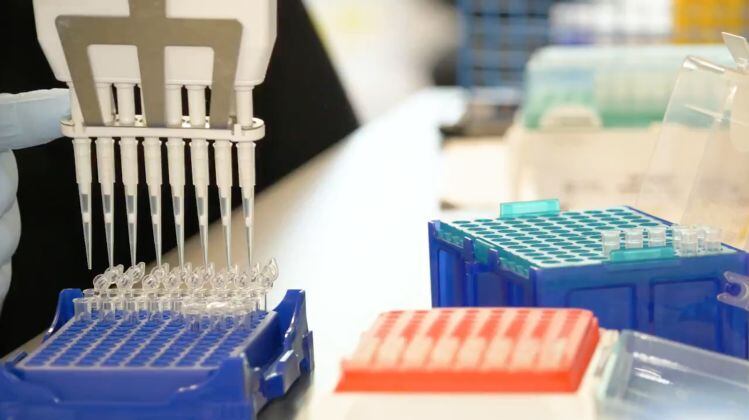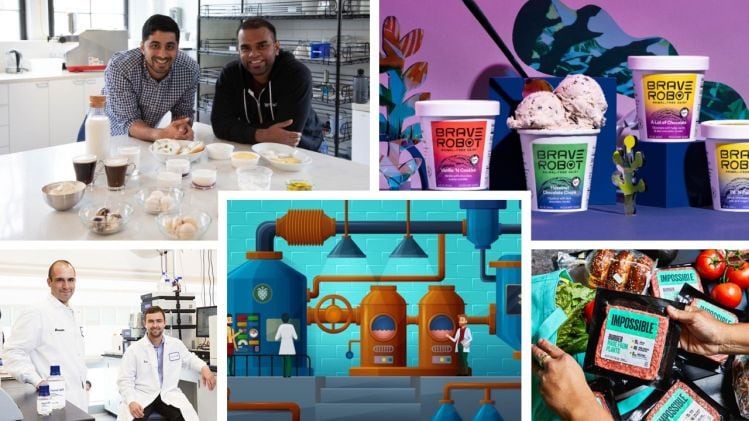The animal-free pepsin - which will be distributed by Ingredion - has the same functionality as the animal-derived variety, with the added benefits of “safe and consistent sourcing, quality control, price stability and vastly increased sustainability,” said San Francisco-based Clara Foods, which is best-known for using engineered microbes to express egg proteins (minus the chickens).
While pepsin is an enzyme that is frequently used as a processing aid, and in such circumstances is not required to be listed as an ingredient on food labels, many food companies are looking to avoid animal-sourced ingredients these days, whether they have to label them or not, CEO Arturo Elizondo told FoodNavigator-USA.
"Companies are actively trying to get away from animals in their supply chain, period, and COVID-19 has only accelerated that.
"I think in the past, if [an animal-derived ingredient] was used as a processing aid, people were saying OK, we don’t have to disclose it, let’s move on,” said Elizondo, who said more companies are also looking to make vegan, Kosher and Halal claims (Clara's pepsin has Star-K Kosher Certification and Jamiat Ulama-i-Hind Halal Trust certification).

“But now, people are looking all the way up the value chain and there is a lot more scrutiny and companies want to be ahead of the game. They also want to take risk out of their supply chain."
More food companies are looking to avoid animal-sourced ingredients used as processing aids, even if they don’t have to be listed on labels
He added: “I was really surprised to find out how many animal-derived ingredients were being used in foods and beverages that you wouldn’t necessarily know about as a consumer [because processing aids are not listed on labels].
“Guinness was still using fish bladders to filter its beer until a few years ago [Diageo stopped using isinglass – derived from fish bladders - in its filtration process for Guinness in 2018] and egg whites are still used to clarify wine.”

Like fellow foodtech startups Geltor (animal-free collagen) and Perfect Day (animal-free dairy proteins and fats), Clara Foods deploys synthetic biology to make proteins identical to those made by animals, using a suite of microscopic protein factories.
So how does it work?
Pioneers in the space liken synthetic biology to computer programming, only with genetic sequences. DNA sequences effectively serve as lines of computer code (which can be now be printed surprisingly cheaply) that can be inserted into microorganisms such as yeast and bacteria (which are usually fed some kind of sugary feedstock in big fermentation tanks) so they express anything from proteins and sweeteners to flavors or cannabinoids such as CBD.
‘Pepsin is used in dozens of applications in food, beverage, and supplements’
Although most food enzymes are now produced by using fungal microorganisms such as Aspergillus Niger or Aspergillus oryzae, pepsin is still largely made from pig stomachs, said Elizondo, who is producing Clara's animal-free version using yeast as a host microorganism, and has gone through the self-GRAS process.
“To date, almost all pepsin has been made using animals, and we are saying to people if you’re using pepsin, or any animal protein, come to us and we can find ways to identify these opportunities and find solutions, as we can be very nimble and adaptive. It’s really exciting as it’s our first foray outside of the egg space. We want to accelerate the world’s transition to animal-free proteins.”
There is also a sizeable market for digestive enzymes such as pepsin – a protease which breaks down (hydrolyzes) proteins to make them more digestible – in the dietary supplement market, said Elizondo, who said Clara's animal-free pepsin was very competitively priced.
“We’re working very actively with Ingredion in this area as they have distribution in a lot of markets and with customers that are in this space. Pepsin is used in dozens of applications in food, beverage, and supplements. But it’s not even just food.”
‘We’re offering the functionality of animal protein without all the baggage’
So what else is in the Clara Foods pipeline?
The team is particularly excited about individual proteins in eggs with unique properties that had not previously been explored as it is too expensive to extract them from eggs, said Elizondo, who said Clara Foods is also working on a highly soluble egg protein for beverages (coming out later this year), an egg white replacer (animal-free egg albumin, likely coming out by the end of the year), and anti-microbial proteins, in addition to pepsin.
“What unifies our entire portfolio is the focus on functionality,” said Elizondo. “Where are animals still king? Animal proteins still dominate the protein beverages category. There’s a reason why [plant-based] egg alternatives have only captured a small share of the egg market [because they don’t have exactly the same functionality as eggs].
“We’re offering the functionality of animal protein without all the baggage.”
As the FDA explains HERE, Pepsin is an “enzyme preparation obtained from the glandular layer of hog stomach. It is a white to light tan powder, amber paste, or clear amber to brown liquid. Its characterizing enzyme activity is that of a peptide hydrolase.”
(Clara Foods' animal-free pepsin is made using yeast as a host micro-organism.)




